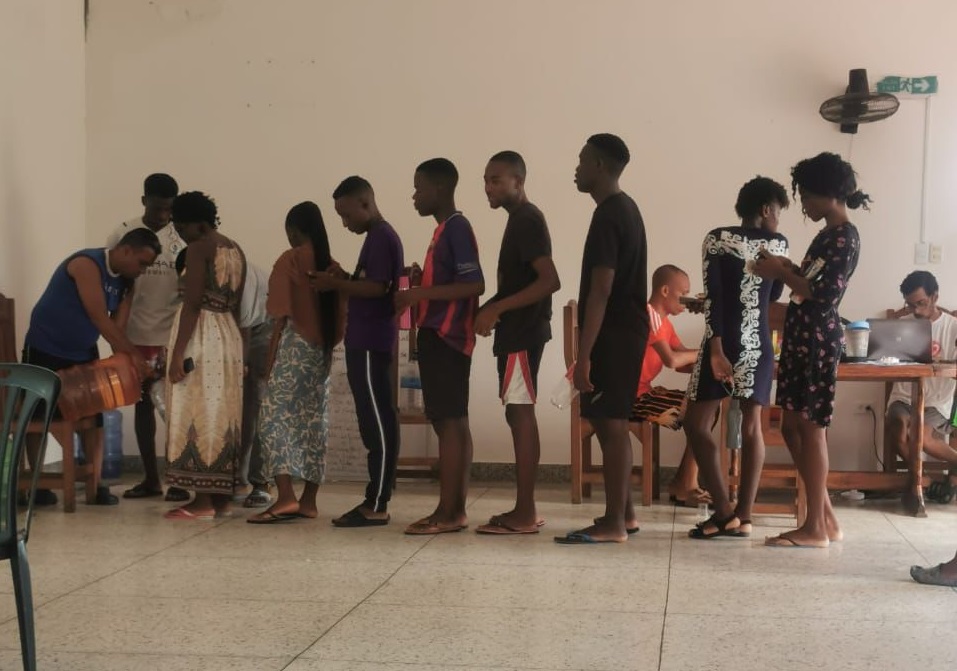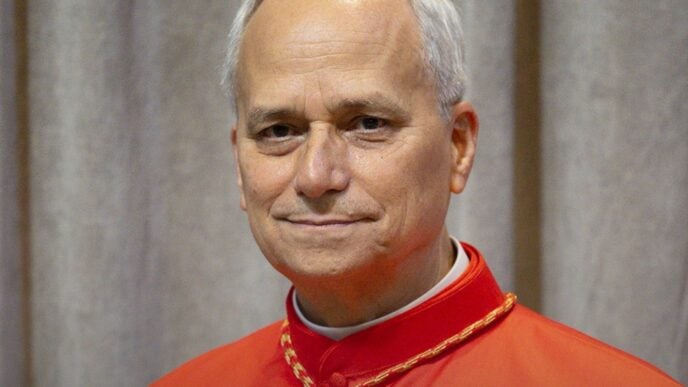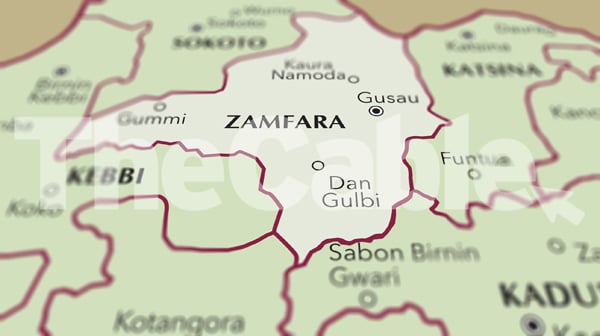BEA Water Rationing in Venezuela
Nigeria is opting out of the bilateral education agreement scheme, but beneficiaries say the country is taking the easy way out after years of shirking financial obligations to federal scholars stranded abroad.
By contract, Nigeria has operated the BEA student exchange scheme with countries in Africa, Europe, North America, and Asia for years.
Algeria, China, Cuba, Egypt, Hungary, Japan, Mexico, Morocco, Romania, Russia, Serbia, South Korea, Tunisia, Turkey, and Ukraine are signed to it.
Signatory countries give annual slots to Nigeria’s federal scholarship board, which then nominates indigenous applicants by merit.
Advertisement
The host country is to cover tuition and provide housing for the scholars, while Nigeria pays the awardees a yearly allowance of $200 for health insurance, $500 annually for medicals, and $500 in monthly stipend for nutrition, books, equipment, and transport.
Nigeria was to provide a cummulative $7,450 to postgraduate scholars and $6,450 to undergraduates yearly under this arranegement.
But perennial defaults in stipend payment, blamed on Nigeria’s forex crisis, has pushed many scholars into off-the-book work placements that violate their student visa, alms begging, asylum seeking, and even shoplifting to survive in foreign countries.
Advertisement
Nigeria’s stranded scholars have, as a result, repeatedly lobbied lawmakers, engaged foreign embassies, and undertaken media campaigns.
In 2024, these resulted in media discourse that prompted the summoning of a former education minister to the national assembly, after which Nigeria’s federal scholarship board would only respond by slashing BEA stipends by 56 per cent in pursuit of sustainability.
By April 2025, Nigeria’s education ministry disclosed that it was discontinuing the BEA scheme.
The ministry described BEA spending as “wasteful”, with the minister, Tunji Alausa, accusing the scholars of resorting to embarrassing social media blackmail over the delayed stipends.
Advertisement
While assuring continued support for active BEA beneficiaries, he said Nigeria now plans to redirect public funds from overseas scholarships towards strengthening domestic education.

As of this reporting, Nigeria has over 1,532 active BEA beneficiaries.
Nigeria’s budget for servicing the BEA scheme has also grown over time, from N3.2 billion in 2022 and N4 billion in 2023 to N6.7 billion in 2024 and N8 billion in 2025.
| Cost of Awarding and Servicing BEA Scheme (2019 -2025) | ||||
| YEAR | Fresh Awards | Budget (₦) | Ongoing Servicing | Budget (₦) |
| 2019 | 272 | 16,870,665 | 827 | 904,101,786 |
| 2020 | 472 | 15,225,744 | 1027 | 1,900,943,151 |
| 2021 | 598 | 327,413,682 | 1396 | 1,247,986,699 |
| 2022 | 598 | 1,291,981,438 | 1396 | 3,254,418,163 |
| 2023 | 430 | 478,375,884 | 1434 | 4,057,444,823 |
| 2024 | 185 | 1,391,247,500 | 1532 | 6,775,435,000 |
| 2025 | 300 | 2,520,000,000 | 1532 | 8,000,000,000 |
It is unclear how many of these were often released.
Advertisement
UNPAID STIPENDS PERSIST
Although the education ministry said all supplementary allowances owed to BEA beneficiaries had been paid up to 2024 after the stipends were halved, multiple student sources argue otherwise.
Advertisement
TheCable contacted a student leader under the union of BEA beneficiaries, who gave a breakdown of outstanding payments.
The union said each scholar is still owed $3,123 for 2023 due to unpaid months and exchange rate differentials, and an additional $3,597 for 2024 due to the sudden 56 per cent stipend cut and central bank-related delays.
Advertisement
This brings the total outstanding per scholar, according to the sources, to $6,720.
The union said these debts remain unsettled and that no payments have been made for 2025, leaving scholars in financial distress even as the government phases the scheme.
Advertisement
Bilal Bakari Aliyu, a student leader for Nigeria’s BEA beneficiaries who is in his sixth year for a medical programme at Mohammed V University in Rabat, said the federal government is failing to acknowledge some of its backlog of unpaid stipends.
“Imagine that we were busy calling for a review of our situation and seeking unprovided accommodation for those in Morocco, yet our stipend was cut from $500 to $220,” he said.
“The inflation in Nigeria and currency devaluation are biting us hard. Every month or two, a BEA beneficiary loses their parent who provides for them. Some of us are orphaned.
“A well-sustained scholarship scheme is a blessing, but if it continues as decorated suffering, then it becomes a curse.”
PARENTS SAY DOWNSCALING THE BEA SCHEME IS BETTER
Under the BEA scheme, several hundred underprivileged students have been exposed to diverse academic and cultural environments, enhancing their global competencies and career prospects.
The scheme was intended to foster international cooperation and allow scholars to gain specialised training in fields that may be underdeveloped locally, ultimately contributing to national development when they return with advanced knowledge and skills.
Many take up a diverse range of programmes from engineering and robotics to medicine and the arts.
Audu Wuyep, chairman of the parents association for BEA scholars, said the scheme in Nigeria has run for “upwards of 50 years”, enabling access to disciplines that are sometimes not even offered in Nigeria.
“The benefits have been enormous. It has facilitated the ties between Nigeria and the host countries,” he said.
“Parents believe that the programme should be sustained. We can review aspects of the agreement or even reduce the number of participants for sustainability.
“We should be afforded an audience with the new minister to update him about the welfare of our children.”
‘REDUCING BEA TO MONETARY COST MISSES ITS PURPOSE’
Mohammed Hammad, a medicine and surgery student at Sidi Mohamed Ben Abdellah University in Morocco, got into the BEA scheme in 2021 for a programme to end in 2029.

He described the claim that the federal scholarship board had cleared all unpaid BEA stipends as “a betrayal of trust”.
“I know students who have dropped out because they couldn’t survive without funds due to the defaults in 2023 and 2024. Some others repeated their entire academic year,” he said.
“Some of our female colleagues are humiliated by their landlords over unpaid rents to an extent that the local embassy had to intervene. Imagine the pain of explaining to your international colleagues why our government seems to have abandoned us.”
Hammad said reducing this programme to monetary terms alone, as he argues the minister has done, misses its purpose.
“I’ve mastered four languages through this programme, each being a key to other cultures and ideas,” he said.
“I’ve joined global debates about our future. All this is an investment in Nigeria’s leadership and innovation.
“BEA scholars are ambassadors. We’re not a burden on Nigeria’s budget.”
Joseph Danjuma, a Nigerian at Rostov State University in Russia, who started his medical programme in 2018 to graduate in June 2025, said the BEA scheme taught him what a working system should look like.
“These are experiences I look to apply when I return to Nigeria,” he noted, citing a component of the BEA contract.
Slashed, unpaid, and irregular stipends over the years meant Danjuma had to beg Russian friends for food, depend on Church handouts, work on farms for 12 hours to cover basic costs, and return the next morning to attend classes.
“We could barely study,” the medical student recounted.
“I was happy when Nigeria said it would suspend the BEA scheme. But calling it a waste of money and scrapping it entirely is not a real solution. This is the only way the children of the masses can afford quality education.
“It is such an inappropriate, privileged, and selfish thing to describe access to education for the poor as a waste of money.”











